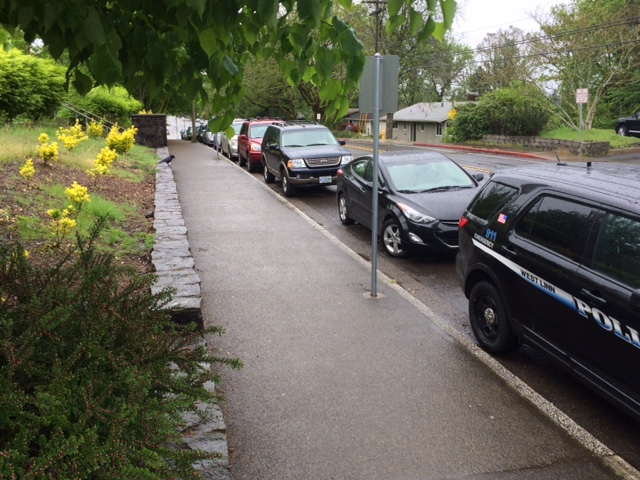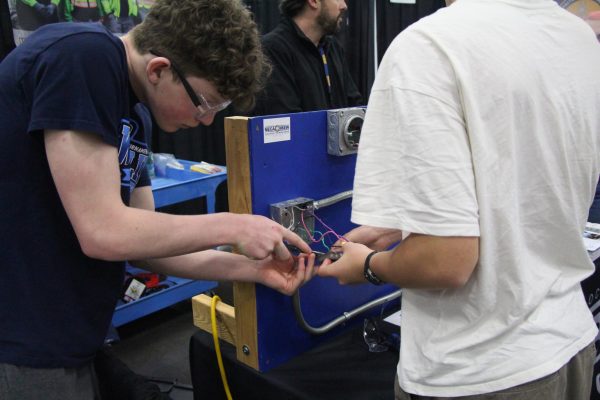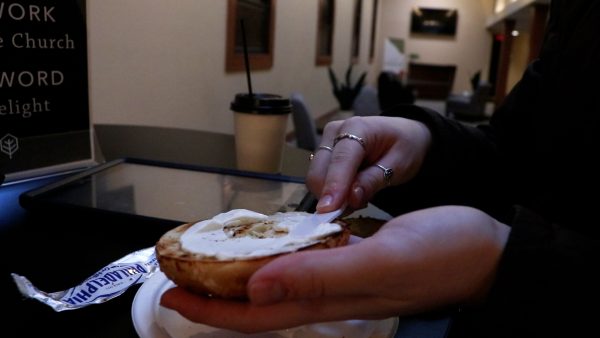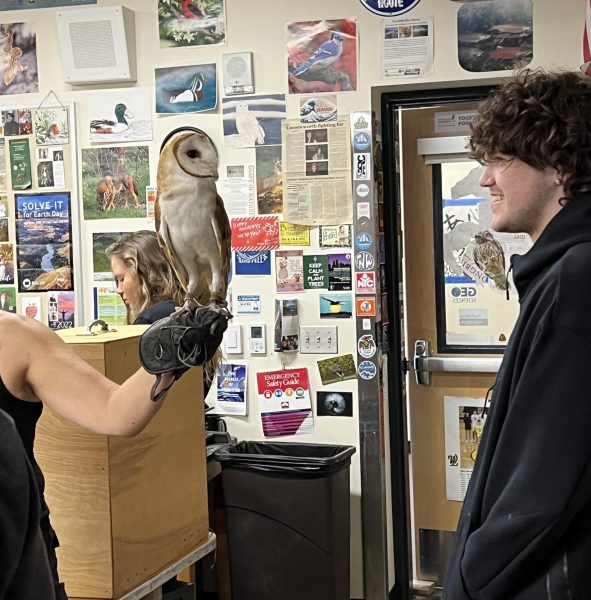Looking to expand
Limited parking is taking its toll on student drivers
Cars line the street in front of the school as students struggle to find available parking. With numbers still rising, spots will continue to be scarce for years to come.
As enrollment numbers increase and the hallways slowly fill up, the ever increasing amount of students is slowly becoming visible to the public eye. Lack of classroom space has now transferred to the parking lots as nearby streets line up with cars parked bumper to bumper.
“If you don’t get there early enough,” Hailey Davis, junior, said, “You have to walk pretty far and all of your things get wet if it’s raining.”
With barely enough spots to satisfy senior parking demands, there are no parking options provided to juniors, and definitely none available to sophomores who become licensed throughout the year. Arguments can be made for taking buses and carpooling, but a lot of the time students live far away and if they need to get to work, waiting for a bus takes them too long.
“Kids need to get to school and they need places to park,” Maddy Itschner, junior, said.
The need to expand on parking is not only for driver convenience. Many are feeling the pressure from AP tests, regular tests and extracurricular activities. To arrive at school two hours early is starting to wear down students and have an impact on their daily schedule.
“I’m super tired at school,” Davis said. “It’s hard when I have to keep waking up earlier and earlier because I have to stay up late doing homework after sports.”
Other than having to wake up early in order to find parking and risk getting a ticket, nearby residents have offered parking in their driveways. Prices, however, can range from $30 to $50, and can be changed as the year goes on.
A majority of students feel bad taking up roadside parking, but when all of the spots have been taken by those willing to take early morning naps in their cars, risking a ticket is the only way they can make it to class on time. Instead of going on a hunt for a parking spot, students are looking for alternatives.
“I think they should offer parking passes for nearby roads, but the ultimate problem solver would be to create a parking complex,” Itschner said. “As the school population continues to grow, they’ll need to expand the school, so why not do the same with parking?”
No matter what temporary solution is found, there is no doubt that action must be taken soon as the incoming classes only continue to grow.
Your donation will support the student journalists of West Linn High School. Your contribution will allow us to continue to produce quality content by purchasing equipment, software, and continuing to host our website on School Newspapers Online (SNO).
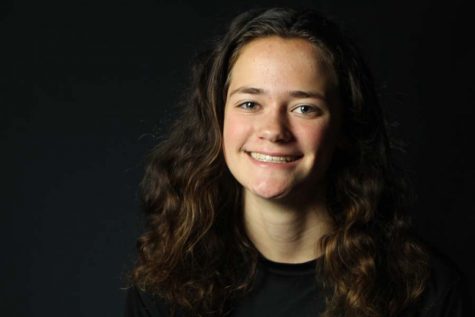
Going from soccer practice, to softball practice and then finally home to practice her trumpet, Brooke McKelvey, senior, is definitely not a lazy person....




















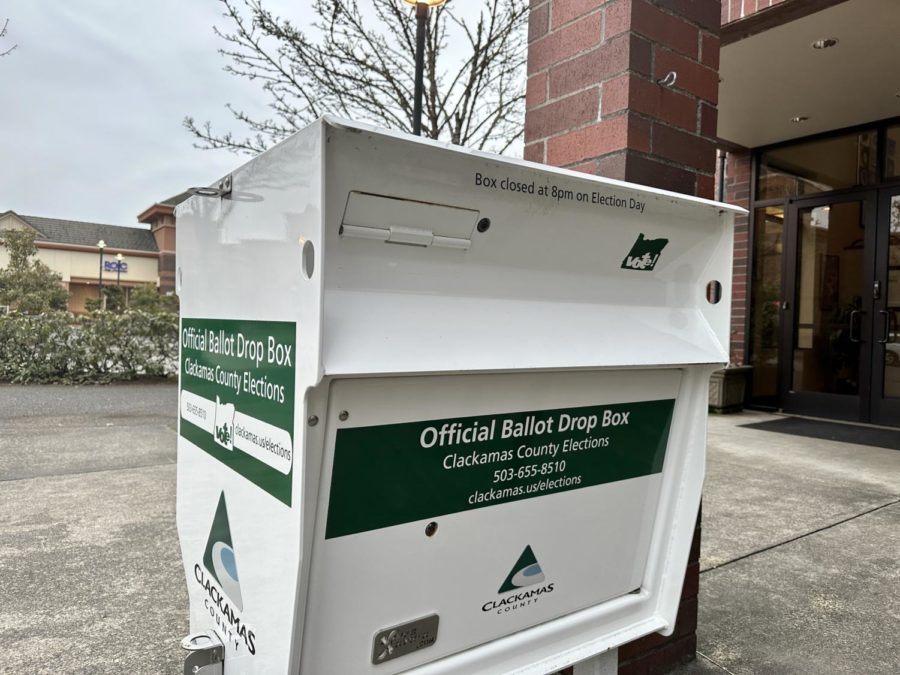



![Game, set, and match. Corbin Atchley, sophomore, high fives Sanam Sidhu, freshman, after a rally with other club members. “I just joined [the club],” Sidhu said. “[I heard about it] on Instagram, they always post about it, I’ve been wanting to come. My parents used to play [net sports] too and they taught us, and then I learned from my brother.”](https://wlhsnow.com/wp-content/uploads/2024/03/MG_7715-2-1200x800.jpg)
![At the bottom of the third inning, the Lions are still scoreless. Rowe stands at home plate, preparing to bat, while Vandenbrink stands off to the side as the next batter up. Despite having the bases loaded, the team was unable to score any runs. “It’s just the beginning of the season. We’re just going to be playing out best by June, [and] that’s where champions are,” Rowe said.](https://wlhsnow.com/wp-content/uploads/2024/03/IMG_3077-1200x900.jpg)






![The teams prepare to start another play with just a few minutes left in the first half. The Lions were in the lead at halftime with a score of 27-0. At half time, the team went back to the locker rooms. “[We ate] orange slices,” Malos said. “[Then] our team came out and got the win.”](https://wlhsnow.com/wp-content/uploads/2023/10/IMG_2385-1200x800.jpg)







































































